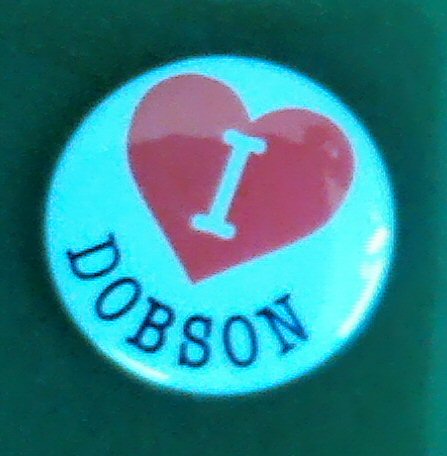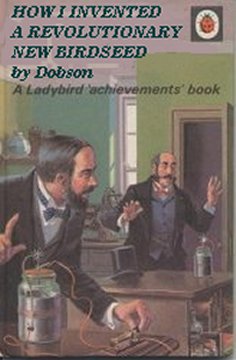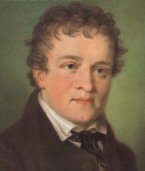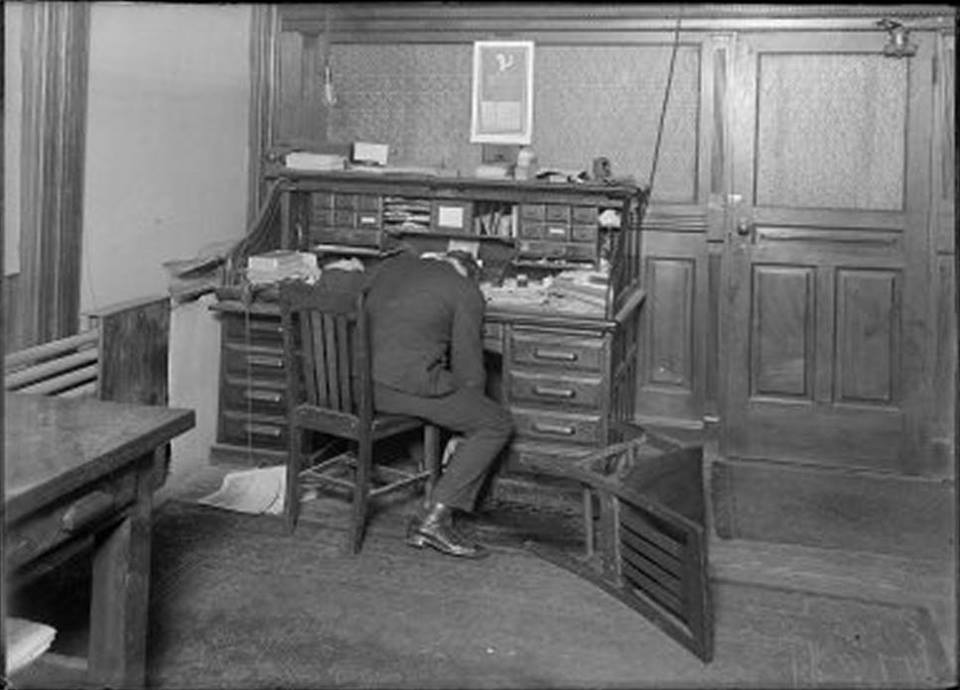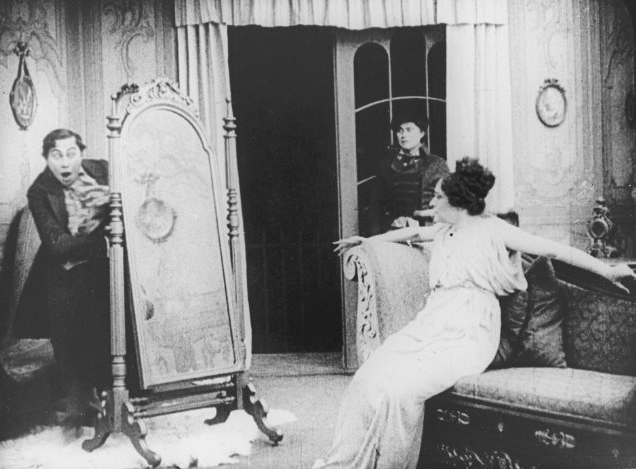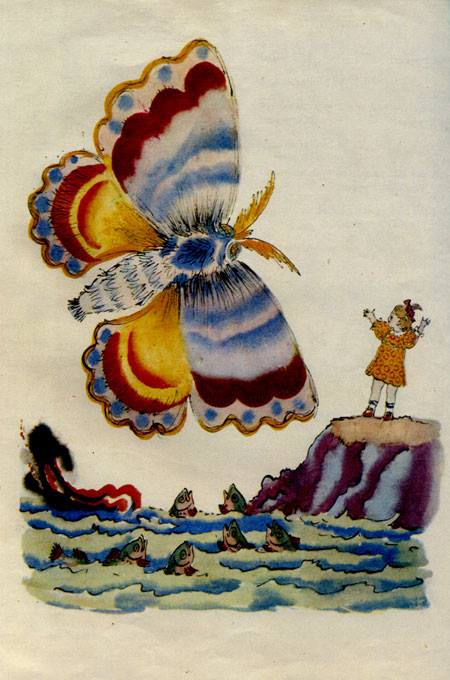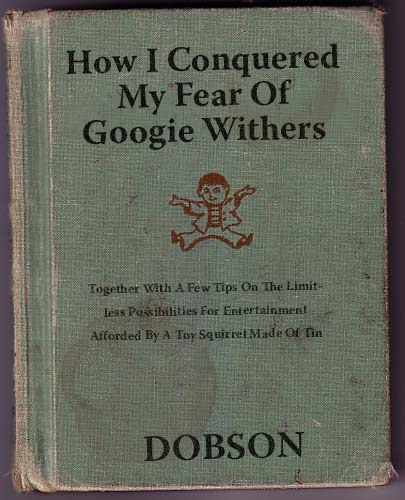Although it is not compulsory (yet) for devoted readers to shower Mr Key with gifts, it is certainly advisable. I was very pleased to find this lapel accoutrement in my Christmas sock, and would encourage all of you to spend the best part of 2015 considering carefully how you might demonstrate your fealty next time Yuletide comes around.
Category Archives: Characters
Birdseed Folderol
Several years after Sirinuntananon & Bewg published Dobson’s birdseed folderol, a second edition was issued by Ladybird Books.
Sirinuntananon & Bewg
The vast majority of Dobson’s pamphlets were self-published, printed on a Gestetner machine in the garden shed by Marigold Chew, the bindings stitched by hand. On one occasion, however, the pamphleteer felt impelled to seek commercial publication.
“I feel impelled,” he announced to Marigold Chew over a breakfast of kippered sprats and marzipan brulé one desolate winter’s morning, “To seek commercial publication for one of my pamphlets.”
Marigold Chew raised an eyebrow.
“I shall be most distraught, or is the word distrait?,” she replied, “To leave the Gestetner idle while you go swanning off to large important buildings. But I nevertheless think it a good idea, albeit foolish, and I wish you well.”
Twenty minutes later Dobson went crashing out of the door into the winter horrors, vowing not to return until he had persuaded a publishing concern based in a large important building to issue one of his pamphlets in an edition of millions.
His first port of call was Semi-Collapsed House, a large important and semi-collapsed edifice on Slobber Lane, just along from the railway sidings and the hamster pound. Its lower floors housed the offices of Sirinuntananon & Bewg, an ancient and distinguished publishing company. Best not to dwell on the doings on the building’s upper floors, which had been rented out, for many years, to Babinsky, the lumbering walrus-moustached serial killer.
Icicles dangling from the brim of his Homburg, Dobson crashed into the reception area. It was deserted, save for a stray cobweb and a scurrying beetle. Dobson stamped on the beetle, and the thud of his Cambodian Actuary’s boot upon the linoleum (and the beetle) brought a hobbledehoy skittering into the room from a dark interior somewhere-or-other. The hobbledehoy tugged his forelock, which was greasy, greasy and vile, greasy and vile and repellent.
“How may I be of assistance, good sir?” he whimpered.
“I am Dobson!”, shouted Dobson, as if that were all the world need know.
Several hours later, having managed to persuade the hobbledehoy to allow him beyond the reception area, the pamphleteer was ushered into the office of Mr Sirinuntananon, or possibly Mr Bewg.
“I understand,” said the publisher, “That you have been impelled to seek commercial publication for one of your pamphlets.”
“To whom am I shouting?” shouted Dobson.
The hobbledehoy loomed behind him and spoke barely audible words into his ear.
“That is Mr Bewg, sir. He is boisterous and brilliant and barbaric. You can tell them apart, when they both occupy the same space, because Mr Sirinuntananon is saturnine and scruffy and savage.”
No sooner had he stopped speaking than a saturnine and scruffy and savage fellow slid into view from behind an arras.
“See?” said the hobbledehoy.
We might usefully pause here to consider a potted history of Sirinuntananon & Bewg. It is a history not only potted but illustrious, redolent with terrific books and equally terrific authors, with terrific mezzotints tinted especially for the covers of those terrific books, and with terrific hairstyles sported by those terrific authors. Unfortunately, from somewhere upstairs there comes the ungodly din of Babinsky, wreaking his usual blood-splattered chaos. It is a din which deafens as it distracts, so we shall have to postpone the potted history for a more opportune time. I have pencilled in next Tuesday lunchtime, incorrigible optimist that I am.
Instead, let us watch as winter sunlight glitters on the semi-collapsed roof of Semi-Collapsed House. Let us ponder its broken chimney-pots in which adventurous birds have built their nests in which tatterdemalion fledglings screech, their beaks opened wide awaiting mama or papa to come swooping in from foraging to drop juicy wounded worms into their gullets. Let us watch as clouds scud across the winter sun and the first flurries of snow begin to fall. And now, below, we see the pamphleteer, ejected into the street. Dobson has left the building.
“Hello Dobson,” said Marigold Chew, later, as her snow-covered inamorato came crashing through the door, “How did you get on?”
“It was like this, Marigold my poppet,” said Dobson, “I visited the offices of Sirinuntananon & Bewg the ancient and distinguished publishers where I met saturnine and scruffy and savage Nuttawood Sirinuntananon and boisterous and brilliant and barbaric B. Bewg also their hobbledehoy who acts as a kind of factotum and after some shilly-shallying into the details of which I shall not go now or evermore for it pained me exceedingly and I do not wish to relive it the hobbledehoy made a pot of tea for three and we sat in armchairs the publishers and me and Bewg began to speak but I could not hear a word he said for from above on the upper floors of the building came such a din as can only have been the sound of a psychopathic serial killer committing an enormity perhaps with an axe and when eventually it subsided after a final blood-curdling scream I asked Bewg to repeat himself but instead his colleague spoke and there was savagery in his voice as he explained that the previously independent publishing firm founded by Sirinuntananon’s grandfather and Bewg’s grandmother so long ago had now through what he called market forces whatever they might be been sold to a new owner of untold wealth and influence and this fellow generously allowed Sirinuntananon and Bewg to cling on to their positions in the offices in Semi-Collapsed House but that all decisions about what was published or not published were his the new owner’s and his alone and if I told them something about my proposed pamphlet then they would ferry he used the word ferry that to the owner and he would consider my proposal there and then for he liked to make snap decisions so I said that I had an idea for a pamphlet about a revolutionary new type of birdseed or millet but if that was not deemed commercial enough I also had up my sleeve an exciting science fiction yarn entitled Attack Of The Jellyfish Monsters From Planet Googie Withers and would they run both of those past the new owner and Bewg and Sirinuntananon looked at one another and gulped down their cups of tea in somewhat barbaric and savage fashion as if they had never drunk out of dainty china cups before and then they told me to wait and they both left the room and I sat and peered out of the window and saw that snow was falling and I fell into a daze and dreamed of dust and I woke when the door opened and it was neither Sirinuntananon nor Bewg but the hobbledehoy and he gave me a wolfish grin and took my empty teacup and smashed it against the wall like Dusty Springfield liked to do with crockery and then there was a puff of smoke and the hobbledehoy vanished in a cloud of fuming vapour as black as the blackest thing in the universe and beyond and a minute or so later he stepped out of it towards me only it was no longer him the hobbledehoy but a transfigured version with horns and a forked tail and eyes that burned and it was Beelzebub himself I swear it as sure as eggs is eggs and he roared at me that he had given due consideration to my suggestions and made a snap decision that the world was absolutely ready for a million-selling pamphlet about a revolutionary new type of birdseed or millet and he had already had his minions Sirinuntananon and Bewg draw up a contract and he brandished it at me a single sheet of paper on which the words seemed to have been scratched in gore by a wild beast and he continued to roar saying I must understand that by signing the contract in return for commercial publication of my pamphlet I would be selling him my immortal soul and did I understand him quite plainly my soul would be his for eternity and did I realise that eternity never came to an end and if I wanted to comprehend the unimaginable duration of eternity I ought to read the sermon by the priest in A Portrait Of The Artist As A Young Man by James Joyce and I said I had already read it and I understood and he said here is your chance to back out you can leave Semi-Collapsed House and forget everything that has happened here and continue with your puny and curdled life churning out unread and out of print pamphlets until you drop dead but if you sign the contract I will publish your birdseed folderol and I will have your soul and I said alright alright you don’t need to repeat yourself I get the idea and he shoved the contract into my hands and gave me a biro and said so will you sign Dobson will you sign and my heart was going like mad and yes I said yes I will Yes.”
BamBam Goes Haywire
On Thursday morning, BamBam went haywire. That is all I am prepared to say on the subject. You may have questions, such as who or what is BamBam?, what is the etymology of the word haywire?, and so on, but quite frankly it is not up to me to spoonfeed you. I fail to see why you should not do your own research into these matters, thus freeing me for more important tasks, such as taking a well-earned nap, smoking a gasper while gazing out of the window, or stuffing my gob with a pile of Smokers’ Poptarts. Any of those choices would be a better use of my time than telling you about BamBam going haywire.
Oh please please Mr Key!, I hear you wail, Do tell us more! To which I reply, certainly not. At most, I might give you some pointers to help you conduct your own research. For the etymology of the word haywire, I can think of no better reference source than the Oxford English Dictionary. Oh, wait, I can think of a better source – Dobson’s pamphlet Everything You Ought To Know About Hay, And Words Beginning With Hay- (out of print). In fact I am surprised not to have recommended this pamphlet to you before. It is the most haycentric of all Dobson’s works, and its first edition, of ten Gestetnered copies, actually had a cover to which strands of real hay were affixed, with glue. This had the unfortunate effect of partly obscuring the title, with the result that the pamphlet sold even fewer copies than was usually the case.
If you do your research thoroughly, you will probably be exhausted by the time you are fully conversant with the word haywire. Your head will be so crammed with new and exciting information that there will be no room left to add anything at all. That being so, it seems rather pointless for me to tell you where you could discover further information about BamBam. Nevertheless, there will always be two or three scallywags who don’t know when to stop, who will plough on regardless. Such persons are very exasperating, like hyperactive tots, and should not be encouraged. I find the best way to deal with them is to administer a dose of Ox-Stun, a proprietary tranquiliser more commonly used to stun oxen, at such times as one needs to stun oxen, which, depending on circumstances, can be every Thursday morning or once in a blue moon.
Now, everybody sing along : Blue moon, You saw me standing alone Without a dream in my heart Without a love of my own…
Savagery In Splat
So, what was meant to happen at the latter end of last week was that Roland Clare and I would present our double act on literary nonsense to the sixth-formers of Truro School. (A riveting account of an earlier appearance at Bristol Grammar School can be found here.) A scheduling mixup hoo-hah meant, however, that instead of descending upon the not-so-tinies in tandem, Roland and I did our bits separately, on successive days. Improvising brilliantly. Mr Clare inserted into his presentation an old Hooting Yard On The Air recording, so my disembodied voice provided a foretaste of what had of necessity become the next day’s entertainment. The piece he chose was, appropriately, devoted to the subject of an unsuccessful educational initiative in Cornwall. It first appeared in Hooting Yard on 30 March 2006. Here it is again:
Dear Mr Key, writes Octavia Funnel, I am sure I read somewhere that Dobson’s companion and amanuensis, Marigold Chew, was a feral child, like the Wild Boy of Aveyron or Kaspar Hauser*. Is this true?
I think I can help Ms Funnel out here. She is clearly unfamiliar with Dobson’s rare and out of print pamphlet Ten Things Guaranteed To Drive Marigold Chew Crackers, an amusing bagatelle which he wrote for Marigold’s birthday one year. It is worth quoting at length:
Left, the Wild Boy of Aveyron. Right, Kaspar Hauser
There can be no doubt about number one on the list of things that drive Marigold Chew crackers. Countless are the times I have witnessed her seething with fury when she is mistaken for Mary Goldchew, the so-called Savage Infant of Splat.
Splat is a tiny, stricken village in Cornwall, and it was here, on a muggy summer’s day in 19–, that a peasant pushing his barrow of countryside filth along a lane was astonished to encounter a small child roaring and spitting and growling and scrabbling in the muck. Its gender was indeterminate, but its savagery was unquestionable.
The peasant, sad to say, had the morals of the gutter and a heart as foul as a swamp, and he decided then and there to sell the child to a travelling circus or a zoo. Plucking the child from its ditch, he shoved her on to his barrow and trundled off towards a larger town where mountebanks were known to gather. But the child, bestial being that she was, sank her teeth into the peasant’s wrist and attacked him in a whirling frenzy of bloodlust. She was gnawing the hair off his head when a kindly doctor arrived on the scene. He patted her on the head and announced, “There, there, little one, be not afraid. I am a kindly doctor fascinated by Natural Philosophy, and I shall take you to my comfortable house and see if, over a period of months, or years, I can instil in you the civilised qualities that were your birthright but have been stolen from you by no doubt tragic circumstances. What is your name?”
The child howled.
“Ah,” said the kindly doctor, “You are inarticulate. That noise you made sounded to me like a combination of a wolf and a bear, with perhaps a touch of corncrake. I deduce that you have been raised since you were a baby by wolves and bears and corncrakes, and mayhap by bees and hornets too. Still, you must have a name, child, so I shall call you Mary.”
Doctor Goldchew took the child by the hand and led her to his house, which stood all alone in a field outside Splat. There, he dunked her in a disinfectant bath, dressed her in girly clothes, and embarked on a comprehensive pedagogical regime. Over the following weeks, he attempted to teach her metaphysics, arithmetic, rhetoric, logic, Latin, Greek, bread baking, botany, chemistry, religious instruction, conspiracy theory, merchant banking, astronomy, philology, and the rudiments of table tennis, or ping pong. During this time reporters from the Splat Courier & Bugle camped out on his doorstep, filing a series of woefully inaccurate stories about the girl they called the Savage Infant of Splat. Her fame spread throughout Europe, and Doctor Goldchew received visits from some of the most distinguished intellectuals of the day, including Kapisko, Blunkett, and Woobie. It was the latter who persuaded the kindly doctor to have the girl baptised by being fully submerged in the sea off the coast of Cornwall, during which baptism she nearly drowned.
She entered the booming ocean a savage infant, biting and squealing and howling, wrote the doctor, and she emerged as Mary Goldchew, a pious Christian child.
This is a selective account, of course. The doctor makes no mention of the drenched and spluttering tot who was fished out of the water by a passing trawler. Nor does he admit that the “pious Christian child” remained incorrigibly savage for the rest of her long, long life. In spite of the doctor’s lessons – to which he soon added physics, geology, alchemy, polevaulting, palaentology, entomology, knitting, forensic medicine, vexillology, Dianetics and pottery – the Savage Infant of Splat became a Savage Adolescent and in turn a Savage Adult. She celebrated her twenty-sixth birthday by creeping into Doctor Goldchew’s bedroom as he slept and smothering him with a pillow.
Thereafter she spent her days crashing around like a wild maniac as the once comfortable Splat house fell into ruin about her. When she died, craggy and ancient, decades later, she had learned nothing – nothing except to speak two words, the same two words that were the full extent of the Wild Boy of Aveyron’s vocabulary: God and milk.
*NOTA BENE : Specialists in the field would dub Kaspar Hauser a “confined” rather than “feral” child.
Where Are The Snows Of Yesteryear?
Until yesterday, the snows of yesteryear were being kept in bins in a remote and refrigerated storage facility. Due to a security alert, however, the bins were moved during the night. A fleet of trucks ferried the snow, in the bins, to a secret location. The trucks were refrigerated as, too, we must assume, is the secret location. Because it is secret, I cannot tell you where it is. I don’t even know myself. But what this means is that we cannot answer the question, where are the snows of yesteryear?
Obviously we can answer that they are in a secret, refrigerated, location, but that is hardly satisfactory. The more persistent reporters from the winter weather phenomena press are unlikely to return to their igloo offices only to face the wrath of their white-bearded, icicle-strewn editors. No, they will think up ever more cunning ways to phrase their questions, hoping to trip up the snow authorities.
The snows of yesteryear, where are they?, they might ask, or Yesteryear, the snows of, whatever happened to them? Sooner or later a dimwit on the panel will blurt out the precise coordinates of the secret location, and frenzy will ensue.
Snow frenzy is akin to snow fury, and we are reminded of the bestselling paperback Like A Woman Scorn’d by Ella Snowfury. It was in fact by Pebblehead, writing under a pseudonym. There is a rogue edition purporting to be by Ella Thnowfury, copies of which have fetched sums as high as 15 New Pence on eBay.
Dobson At His Escritoire
Speckles And Splodges And Smudges
Two of the answers in today’s Guardian crossword were SPECKLE and SPLODGE. This put me in mind of Dobson’s pamphlet A Comparative Study Of Speckles And Splodges And Smudges (out of print). It is one of his most exasperating works. The exasperation lies, in the words of the critic Rappa Kohoutek, in the fact that
Dobson opens with the grand statement that “the speckle, the splodge, and the smudge are each of them wholly discrete and different phenomena, and to muddle them up is not merely ignorance, but dangerous ignorance. Wars have been fought, and men have died, for failure to distinguish between the three”. This is exasperating on two counts. First, in the eighty pages of microscopically tiny print that follow, the pamphleteer himself neglects to explain the difference between speckles and splodges and smudges. Second, nor does he provide a single example of the war and death he so melodramatically warns the reader of and I am going to let this sentence run on because I hate to end with a preposition even though to do so is completely defensible unless one is up against the most rigorous of pedants armed, as certain pedants are, with a hammer of correction.
It is perhaps worth noting here that Rappa Kohoutek bore several dents in his head, made by one such “hammer of correction” wielded by a particularly rigorous pedant whose path he used to cross occasionally. The critic liked to spend his mornings at a sophisticated pavement café sipping from a glass of bengkht. Along the pavement would come the pedant with his hammer, lashing out with what used to be called “gay abandon”.
The dents in his head did not effect Rappa Kohoutek’s critical acumen, however, and we must agree with his judgement about this particular Dobson pamphlet. In a sense, we have no option but to agree with him, and trust him, because we are never likely to read the work itself. As he points out, the text of the pamphlet is microscopically tiny, and he is not exaggerating. It is so tiny that the average reader would ruin their eyesight before getting to the end of the preface and acknowledgements. Rappa Kohoutek explains in an afterword to his own essay that he was able to read all eighty pages of text because his sense of vision was inexplicably enhanced by one of the blows to the head he received from the pedant’s hammer of correction. In a further afterword to a second printing of his essay, the critic relates how a subsequent blow from the same hammer restored his sight to its previous mild myopia:
And so I shall never again be able to read Dobson’s pamphlet on speckles and splodges and smudges. But quite frankly, why on earth would I want to? It is absolute drivel.
A hugely magnified copy of Dobson’s pamphlet has been made available by the Dobson Pamphlet Magnification Commission, but so tiny is the text that in spite of the hugeness of the magnification it is still pretty much illegible to any human eye.
Word Of The Day : Clunk
Word of the day : Clunk.
I had hoped, today, to deal with the word clunk, as well as catching up with yesterday’s word, boggle, which as you recall had to be postponed while I addressed further matters regarding parp. Alas, I am diverted from my proper course by another letter from Wlad Onanugu. This time he writes:
Dear Mr Key, I was touched by your thoughtfulness in recommending to me further reading on the knotty problem of parp and toot and hooter and tots, et cetera. Indeed, I was so touched that I am afraid to say I let a few tears run down my cheeks. My weeping and snuffling soon ceased, however, when the significance of those parenthetical words “(out of print)” appended to the recommended title sank in. Sure enough, as I trudged around the bookselling kiosks of the dilapidated seaside resort where I live, I discovered that this Dobson pamphlet was completely unavailable. I was met with blank stares, looks of incredulity, a pitying pat on the head, and, by one particularly apoplectic bookseller, the threat of his slavering, sharp-fanged guard dog.
Eventually, at a jumble sale at the local self-esteem ‘n’ diversity awareness hub, my rummaging did unearth a pamphlet by Dobson. A glance at the Gestetnered cover, however, revealed that it was devoted to a wholly different topic. The title was Several Potentates Of The Ancient World With Collapsed Lungs & Their Concubines (out of print). I bought it anyway, for tuppence, and took it home hoping that perhaps the pamphleteer might have a passing word to say somewhere about the whole parp toot hooter tots business.
Arriving home, I snapped open a refreshing can of Squelcho!, plopped myself down in my armchair, and began to read. Shortly thereafter, I was weeping again, but this time from brain-jangling frustration. The pamphlet seemed to me the most utter poppycock, and try as I might I could wring no sense from it whatsoever. If this is a typical example of Dobson’s work, I am feeling quite relieved that I did not continue my search for the pamphlet you recommended. Please send me a postal order for tuppence as compensation.
I am sorry that Mr Onanugu found Dobson’s prose intractable. There is a possibility, however, that he may well have stumbled upon a copy of the notorious “rogue” edition of Several Potentates Of The Ancient World With Collapsed Lungs & Their Concubines. This was the one where the original text – a model of shining clarity and Dobsonian oomph – was translated into Hungarian, and from Hungarian into Tagalog, and from Tagalog into Dog Latin, before being translated back into English. It was the work of the mischievous literary prankster Hector Nuisance.
Tomorrow I hope to crack on with boggle, and clunk, and tomorrow’s word of the day, glue.
Word Of The Day : Boggle
Word of the day : Boggle.
I am afraid that before we move on to boggle, we have unfinished business with yesterday’s word of the day, parp. Reader Wlad Onanugu writes :
Dear Wordmaestro, I am confused by your maunderings on the word parp. You say it is pretty much identical to toot, but then proceed, in your illustrative sentence, to refer to a hooter, rather than, as I might have expected, a tooter or parper. My mental chaos is compounded by the fact that you also make mention of tots, virtually the same word as toots, though entirely different in meaning. I looked forward to improving my word power with your new series. Instead I find myself quite dreadfully unhinged.
Mr Onanugu will find it helpful to consult Dobson’s pamphlet Parp. Toot, Hooter, Tooters, Parpers And Tots : A Complete Guide For The Bewildered (out of print). I have not read it myself, but am told it is almost, but not quite, “the greatest pamphlet ever written”.
Scenes From The Life Of Blodgett, No. 1
Tiny Enid And The Gigantic Colourful Bewinged Flying Insect
One la-la-la morning, Tiny Enid was limping along the cliffs at the edge of the Big Frightening Sea when, across the sky, zooming directly at her, came a gigantic colourful bewinged flying insect of unknown provenance. Most infants would have screeched in terror and cried for Ma or Pa to rescue them, but of course the plucky fascist tot was not most infants. She raised her arms, as if in terror, to pull the wool over the huge airborne being’s eyes, if it actually had any, and screech she did, but it was a screech not of fright but of blood-curdling menace. It was so terrific a screech that the enormous brightly-coloured mothish type of thing was immediately deafened, playing havoc with its complicated navigational head integuments, and it plummeted forthwith into the broiling waters where, unable to swim, it drowned.
Tiny Enid let fall her arms and patted the pocket wherein she carried her tiny toy Mannlicher-Carcano sniper’s rifle which, in spite of being tiny, and a toy, was a devastatingly effective firearm.
“I am glad I did not have to use my trusty sniper’s rifle to slaughter that curious wing-flapping monster,” she thought, “For it remains fully loaded and I can put the bullets to better use, should I happen later this morning to come upon malefactors and ne’er-do-wells roaming the cliffs.”
As indeed she did, but that is another story for another, more gruesome, time.
Illustration by Vladimir Konashevich, 1923
The Lollopers
I lollop. You lollop. He, she, or it lollops. We lollop. You lot lollop. They lollop.
This is the famous opening paragraph of Dobson’s unfinished, unpublished novel The Lollopers. It was one of his very few attempts at fiction, a register for which he was completely unsuited, as he recognised in his magisterial pamphlet A Magisterial Exegesis Of My Resounding Failure As A Novelist, With A Surfeit Of Adjectives And A Ham-fisted Watercolour Plate Of Ida Lupino (out of print). Dobson wrote:
What I wanted to do in The Lollopers was to drill down, down and down, as deeply as anybody could drill, into the very core of lolloping. I thought that if anybody was qualified for the task, it was me, for when I am not trudging or plodding or gadding or sashaying or stalking, I lollop. I have lolloped along canal tow-paths, seaside promenades, important metropolitan boulevards, rustic lanes, and many another haunt of the pedestrian. I have lolloped in all four seasons of the year, in light and dark, in blistering heat and bitter cold. Indeed, in my preliminary sketches for the novel, I planned an entire chapter in which my fictional hero, Dabson, a hugely successful pamphleteer, beloved by millions and the cynosure of millions more, is seen lolloping during a cold snap.
A secondary aim was to really chew my way through the connecting wire, if there is one, between lolloping and lopping. In the domain of trees, for example, lopping is an intrinsic part of pollarding. You cannot pollard, say, a willow, such as the pollarded willows by the canal just before the level crossing in Brief Encounter (David Lean, 1945), without doing a bit of lopping. You might use a woodsman’s axe or a saw of some description, but whatever cutting tool you avail yourself of, lop you will. The question is, between the ramshackle shed from where you collect the axe or saw, and the willow you are set to pollard, and thus lop, is it imperative that you must lollop? Could you, in the throes of hysteria, skip, or even sprint? And if you did not lollop, how would this affect the quality of your lopping, and therefore, with piercingly acute logic, your pollarding? Actually, that appears to be three questions, not one, so the careful reader will spot – perhaps before I did – that I am becoming hopelessly entangled in the thickets of my own creative struggle. I am no longer even clear whether I am writing in the appropriate grammatical tense.
When one considers that lopping might also apply to the lopping off of limbs and – gosh! – whole heads by the armed and armoured henchmen of a particularly vindictive mediaeval baron, is it any surprise that my novel juddered to a halt after that magisterial opening paragraph? It is not.
In the pamphlet Dobson confesses that he shoved the manuscript of The Lollopers into a drawer where, later that year, around the time of Harold Wilson’s resignation as Prime Minister, it was eaten by voracious famished beetles.
Dobson’s Abortive Bandicoot Pamphlet
“Remind me, Dobson,” said Marigold Chew one morning over breakfast, “Did you ever write that pamphlet you planned about the bandicoot?”
The out of print pamphleteer was fumbling with his fork, trying to spear on its tines one of the shrivelled boiled otter-heads swimming in a broth of gummy pap, with dockweed, in his breakfast bowl. So terrific was his concentration that he barely heard his inamorata, and she repeated the question after taking a swig of New! Breakfast Variety Squelcho! from her tumbler.
Dobson threw in the towel, put down his fork, and reached for a stick of celery-style impacted vegetable matter. Waving it in a show of flamboyance, he announced “I will never write another word about birds!”
This exchange took place during the closing stages of the battle of Dien Bien Phu, so with hindsight we are able to note that Dobson’s statement was ludicrously inaccurate.
“I do adore your non sequiturs, Dobson,” said Marigold Chew, “But do tell, I am agog to know about the bandicoot pamphlet.”
His mouth full of curiously tasteless vegetable matter, Dobson gazed at his inamorata as if she had taken leave of her senses. His table manners being impeccable, he did not attempt an immediate reply. Marigold waited upon his munching. She herself was a dab hand with the fork and the otter-heads and had finished her breakfast some minutes ago.
“Your remark regarding non sequiturs seems to me a non sequitur in and of itself,” said Dobson, eventually, then, his voice rising, shouted “Be that as it may, when I say I shall never again write a single word on the subject of birds, I mean it! And now I am going to go out in the rain to no apparent purpose.”
“I can think of a purpose, Dobson,” said Marigold Chew, “While you are out in this apocalyptic downpour perhaps you could stop by the kiosk in the shadow of the viaduct and pick up a copy of The Daily Digest Of The Doings Of Small To Medium-Sized Terrestrial Marsupial Omnivores for me?”
As he struggled to don his Eritrean Unofficial Goat Wizard’s boots, with their exceedingly complicated lacing protocol, the pamphleteer said “You don’t normally take that publication. Is there any reason for the sudden interest?”
“I think there might be something in it that I want to show you, Dobson,” she said, an enigmatic smile on her lips.
Stamping his feet to finally lodge them firmly into his boots, Dobson took his hat and coat and crashed out of the door into the rain. He wondered why on earth Marigold thought he might be interested in small to medium-sized terrestrial marsupial omnivores, when his head was filled with unrelated matters, including Hungarian football ace Ferenc Puskas, plinky-plonky piano music, weird sausages, asteroid belts, and plums.
“And one thing I am most definitely not interested in,” he shouted at a swan as he passed the pond, “Is birds, any birds, all birds, and that includes you, swan!, and your pals the teal and mergansers and buffleheads and coots and bandicoots!”
Later, sopping wet, Dobson arrived home with a copy of The Daily Digest Of The Doings Of Small To Medium-Sized Terrestrial Marsupial Omnivores which the kioskist had very thoughtfully plopped into a waterproof bag for him, at a small extra charge.
“Here is your magazine,” he said, tossing it on to the table as a puddle formed around his feet.
Marigold Chew took it from the bag, leafed through it, and alighted on a short and interesting article, illustrated with several black and white snapshots taken by tiptop marsupial snapper Rex Supial, on the subject of the bandicoot.
“When you have a moment, Dobson,” she said, “You might want to take a look at this. I shall make a pot of tea.”
And shortly afterwards, the out of print pamphleteer learned, to his horror, that everything he had intended to say about bandicoots in his projected pamphlet, hundreds of pages of scribbled notes and jottings and ill-turned sentences of foolish conjecture, was as dust, was as dust and ashes. All of it, every word, was arrant nonsense! The bandicoot was not a type of coot! It was not even a type of bird!
Dobson slumped in his chair and held his head in his hands. The cup of tea went cold.
Those Out Of Print Pamphlets
If you wish to listen to Mr Key reading out the titles of all 168 out of print pamphlets by Dobson – and you do!, you do! – then all you have to do is point the pointy thing on your computer screen here, sit back, wring out your ears, and wallow for half an hour in the sheer glorious foolishness of it all.
Pamphlet cover design by Daniel Tomasch

